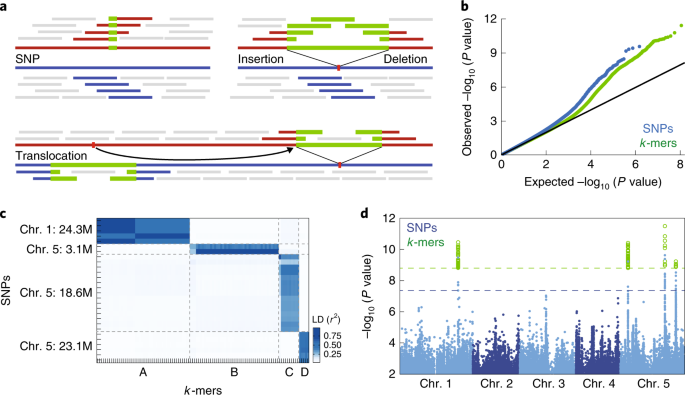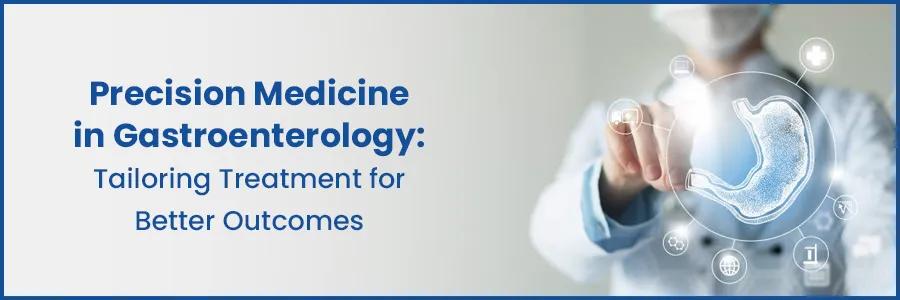Table of Contents
- Providing More Context
- Understanding Genetic PredispositionGenetic predisposition refers to the hereditary factors that make some individuals more susceptible to certain medical conditions or influence their response to medications. In the context of statins, genetic variants can impact how the body metabolizes and responds to these drugs.The Role of Genes
- Statins and Cholesterol ControlStatins work by inhibiting an enzyme involved in cholesterol production in the liver. By reducing cholesterol levels in the bloodstream, they help prevent the buildup of artery-clogging plaques, reducing the risk of heart disease.Individual Responses
- The Importance of Genetic TestingGenetic testing has emerged as a valuable tool in tailoring statin therapy. By analyzing a patient’s genetic profile, healthcare providers can better predict how an individual will respond to statins and determine the most appropriate dosage.Personalized Medicine
- Genetic Variants and Statin SafetyGenetic predisposition also plays a role in how individuals tolerate statin therapy. Some genetic variants are associated with an increased risk of statin-related side effects, such as muscle pain or liver abnormalities.Risk Assessment
- Future Directions in Statin TherapyAs our understanding of genetics and statin therapy continues to evolve, researchers are exploring innovative approaches to optimize treatment. This includes the development of new medications that may be more effective for individuals with specific genetic profiles.Research Advancements
- Offering Additional Insight
Providing More Context
Statins, a class of medications used to lower cholesterol levels, have revolutionized the management of cardiovascular disease. They have proven to be highly effective in reducing the risk of heart attacks and strokes. However, recent advancements in medical research have shed light on the importance of genetic predisposition when it comes to statin therapy. In this article, we explore the intersection of statins and genetic variants, highlighting the significance of tailoring treatment to an individual’s genetic profile.
Statins: Tailoring Treatment to Genetic Variants
Statins, a remarkable class of medications that have revolutionized the management of cardiovascular disease, stand as a testament to the ongoing progress in modern medicine. Their widespread use has significantly improved the outlook for individuals at risk of heart attacks and strokes by effectively lowering cholesterol levels. However, as our understanding of genetics deepens, we are uncovering a new layer of complexity in the relationship between statins and individual health.
Traditionally, statins were prescribed based on a patient’s cholesterol levels and overall cardiovascular risk. The overarching belief was that these medications could uniformly benefit everyone by reducing cholesterol and consequently lowering the risk of cardiovascular events. While this approach has undoubtedly saved countless lives, it has also become increasingly evident that genetic factors play a crucial role in how individuals respond to statin therapy.
Recent advancements in medical research have illuminated the significance of genetic predisposition when it comes to statin treatment. It turns out that not all individuals metabolize and respond to statins in the same way. Genetic variants can influence how statins are processed in the body, affecting both their effectiveness and the risk of side effects. Some individuals may experience remarkable benefits from statins, while others may not respond as favorably or may even be at an increased risk of adverse reactions.
Understanding the intersection of statins and genetic variants is a pivotal development in personalized medicine. By analyzing a patient’s genetic profile, healthcare providers can gain valuable insights into how they are likely to respond to statin therapy. This knowledge allows for treatment plans to be tailored with precision, optimizing the chances of therapeutic success while minimizing potential risks.
For example, genetic testing can identify individuals who are more likely to experience muscle-related side effects from statins. In such cases, alternative medications or lower statin doses can be considered, ensuring that the benefits of cholesterol reduction are achieved without undue discomfort or risk.
Furthermore, genetic information can guide healthcare providers in selecting the most appropriate statin medication for a particular patient. Some individuals may respond better to one type of statin over another and genetic profiling can help identify the best choice for optimizing cholesterol control.
In conclusion, while statins have undeniably transformed cardiovascular disease management, the era of personalized medicine is shedding light on the importance of genetic predisposition in tailoring statin therapy. By incorporating genetic information into treatment decisions, we can further enhance the effectiveness of statins while minimizing the potential for side effects. This intersection of science and medicine represents a promising frontier in the quest for more individualized and precise healthcare, ultimately leading to better outcomes for patients at risk of cardiovascular disease.
For a comprehensive look at this subject, we invite you to read more on this dedicated page: Polygenic risk scores: from research tools to clinical instruments …

Understanding Genetic PredispositionGenetic predisposition refers to the hereditary factors that make some individuals more susceptible to certain medical conditions or influence their response to medications. In the context of statins, genetic variants can impact how the body metabolizes and responds to these drugs.The Role of Genes
Specific genes play a crucial role in determining how the liver processes statins and regulates cholesterol production.
The intricate relationship between genetics, statin metabolism and cholesterol regulation underscores the personalized nature of medical treatments. Within the realm of statin therapy, specific genes emerge as key players in determining how the liver processes these medications and governs cholesterol production. This genetic insight not only enhances our understanding of individual responses to statins but also paves the way for more tailored and effective approaches to managing cholesterol levels:
Genetic Variability: The genetic variability among individuals extends to the enzymes responsible for metabolizing statins within the liver. These enzymes, including those encoded by the CYP3A4 and SLCO1B1 genes, exhibit variations that can influence the rate at which statins are broken down and removed from the body.
Response to Statin Therapy: Understanding the genetic basis of statin metabolism sheds light on why some individuals respond well to these medications, experiencing significant reductions in cholesterol levels, while others may have a less favorable response. Genetic factors can contribute to variations in the efficacy of statin therapy.
Personalized Medicine: The concept of personalized medicine comes to the forefront when considering the role of specific genes in statin metabolism. Healthcare providers can use genetic testing to identify variations in these genes, allowing for the customization of statin treatment plans tailored to an individual’s genetic profile.
Risk Assessment: Genetic testing can also aid in assessing an individual’s risk of statin-related side effects, such as muscle pain or myopathy. Variations in genes like SLCO1B1 have been linked to an increased risk of these adverse effects, providing valuable information for clinicians when selecting the most appropriate statin and dosage.
Optimizing Treatment: Armed with genetic insights, healthcare providers can optimize statin treatment regimens. They may choose to prescribe alternative statins or adjust dosages to achieve the desired cholesterol-lowering effect while minimizing potential side effects, ensuring both safety and efficacy.
Preventive Care: Beyond treatment, genetic information can inform preventive care strategies. Individuals at higher genetic risk for elevated cholesterol levels may receive proactive guidance on lifestyle modifications, dietary choices and exercise regimens to complement statin therapy.
Research Advancements: Ongoing research into the genetics of statin metabolism continues to uncover new genetic markers and variants that influence an individual’s response to these medications. This research contributes to the development of more targeted and effective therapies.
Patient Empowerment: Genetic information empowers patients to actively participate in their healthcare decisions. Armed with knowledge about their genetic predispositions, individuals can engage in informed discussions with their healthcare providers and make choices that align with their unique genetic profiles.
In sum, the interplay between genetics, statin therapy and cholesterol regulation highlights the potential for precision medicine in the field of healthcare. By unraveling the genetic factors that underlie individual responses to statins, medical professionals can optimize treatment strategies, reduce adverse effects and enhance the effectiveness of cholesterol management. As our understanding of genetics and pharmacogenomics continues to evolve, the promise of tailored, genetically-informed healthcare becomes increasingly tangible, offering the potential for improved patient outcomes and a more personalized approach to wellness.
To expand your knowledge on this subject, make sure to read on at this location: Pharmacogenetics | SpringerLink

Statins and Cholesterol ControlStatins work by inhibiting an enzyme involved in cholesterol production in the liver. By reducing cholesterol levels in the bloodstream, they help prevent the buildup of artery-clogging plaques, reducing the risk of heart disease.Individual Responses
Genetic variations can lead to different responses to statins. Some individuals may experience a significant reduction in cholesterol levels, while others may see more modest results.
The diverse responses to statin medications underscore the intricate interplay between genetics, pharmacology and individual physiology within the realm of cholesterol management. Genetic variations play a pivotal role in determining how individuals respond to statins and these variations can lead to a wide range of outcomes.
Pharmacogenomics: The field of pharmacogenomics investigates how an individual’s genetic makeup influences their response to medications, including statins. Specific genetic variations can affect how the body metabolizes and utilizes these drugs. For instance, variations in genes responsible for drug transport, metabolism or receptor binding can all impact how effective statins are in lowering cholesterol.
Individualized Treatment: Understanding these genetic variations allows for a more personalized approach to cholesterol management. Tailoring statin therapy to an individual’s genetic profile can maximize the benefits while minimizing potential side effects. For some, a specific statin or dosage adjustment may be more effective based on their genetic predisposition.
Cholesterol Reduction: While many individuals experience a significant reduction in cholesterol levels when taking statins, others may achieve more modest results. Genetic factors can influence the baseline cholesterol levels and individuals with certain genetic variants may have a greater or lesser response to statins.
Side Effects: Genetic variations can also contribute to variations in statin side effects. Some individuals may be more prone to muscle-related side effects, such as muscle pain or weakness, due to genetic factors. Identifying these genetic predispositions can help healthcare providers choose the most suitable statin or recommend alternative treatments.
Statins and Cardiovascular Risk: The differential response to statins has implications for cardiovascular risk reduction. While statins are effective at reducing the risk of heart disease for many individuals, the extent of risk reduction can vary based on genetic factors. Recognizing this variability allows for a more targeted approach to managing cardiovascular health.
Emerging Research: Ongoing research in pharmacogenomics continues to uncover new genetic markers that influence statin response. This research holds the potential to refine our understanding of which individuals are most likely to benefit from statin therapy and to guide treatment decisions accordingly.
Lifestyle Factors: It’s important to note that genetic variations are just one piece of the puzzle. Lifestyle factors, such as diet, exercise and smoking habits, also significantly impact cholesterol levels and cardiovascular health. The interplay between genetics and lifestyle choices is complex and can further influence an individual’s response to statins.
Patient Education: As personalized medicine gains traction, patient education becomes crucial. Healthcare providers should communicate with patients about the role of genetics in medication response and encourage open dialogue about potential side effects and treatment adjustments.
In summary, genetic variations play a substantial role in shaping an individual’s response to statins, influencing both the degree of cholesterol reduction and the risk of side effects. This recognition of genetic diversity underscores the importance of personalized medicine in the management of cholesterol levels and cardiovascular health. By integrating genetic information into treatment decisions, healthcare providers can optimize statin therapy, improve patient outcomes and minimize potential adverse effects.
To expand your knowledge on this subject, make sure to read on at this location: Wilson’s disease

The Importance of Genetic TestingGenetic testing has emerged as a valuable tool in tailoring statin therapy. By analyzing a patient’s genetic profile, healthcare providers can better predict how an individual will respond to statins and determine the most appropriate dosage.Personalized Medicine
Tailoring statin treatment based on genetic information allows for a more personalized approach to healthcare. Patients can receive the most effective and safe treatment for their unique genetic makeup.
Tailoring medical treatments, such as statin therapy, based on an individual’s genetic information is at the forefront of personalized medicine, promising a revolution in healthcare. This approach not only represents a significant step forward in the quest for more effective and precise treatments but also emphasizes the importance of patient-centric care.
Precision Medicine: The practice of tailoring medical treatments to an individual’s genetic makeup is often referred to as precision medicine. It recognizes that no two patients are the same and genetic variations can significantly impact how a person responds to medication. With advances in genetic testing and analysis, healthcare providers can now identify specific genetic markers that influence how a patient metabolizes drugs like statins.
Enhanced Treatment Efficacy: By customizing statin therapy based on genetic information, healthcare providers can optimize treatment efficacy. For example, some individuals may have genetic variations that make them more responsive to a particular type of statin, while others might be predisposed to side effects with certain medications. Personalized treatment ensures that patients receive the most effective medication from the outset, potentially improving their cholesterol management and reducing the need for trial and error.
Reduced Side Effects: Statins are known for their cholesterol-lowering benefits, but they can also have side effects, ranging from muscle pain to liver abnormalities. Genetic information can help identify patients who are at a higher risk of experiencing these side effects, allowing healthcare providers to select alternative statins or adjust dosages to minimize adverse reactions. This personalized approach enhances patient safety and reduces the discontinuation of necessary medications.
Cost-Effective Care: Tailoring statin treatment based on genetic information can lead to cost-effective healthcare. By avoiding ineffective medications or those likely to cause side effects, healthcare systems can save resources while providing patients with more precise and efficient care. This approach aligns with the broader goals of healthcare systems to reduce unnecessary costs and improve patient outcomes.
Patient Empowerment: Personalized medicine empowers patients by involving them in their own healthcare decisions. When patients understand how their genetic profile influences their response to statins, they become more engaged in their treatment plan. This active participation can lead to better adherence and overall health management.
Future of Healthcare: The integration of genetic information into treatment decisions represents a glimpse into the future of healthcare. As technology continues to advance, genetic testing may become a routine part of clinical practice, enabling healthcare providers to tailor treatments for various conditions beyond cholesterol management. This shift toward precision medicine has the potential to revolutionize how diseases are diagnosed and treated across the healthcare spectrum.
In summary, tailoring statin treatment based on genetic information embodies the principles of precision medicine, offering patients a more effective, safer and patient-centric approach to healthcare. This personalized approach has the potential to transform the way medications are prescribed and administered, ultimately leading to improved patient outcomes, reduced healthcare costs and a brighter future for the field of medicine as a whole.
To expand your knowledge on this subject, make sure to read on at this location: Spontaneous Coronary Artery Dissection: Current State of the …

Genetic Variants and Statin SafetyGenetic predisposition also plays a role in how individuals tolerate statin therapy. Some genetic variants are associated with an increased risk of statin-related side effects, such as muscle pain or liver abnormalities.Risk Assessment
Identifying these genetic variants can help healthcare providers assess the potential risks and benefits of statin therapy for individual patients.
Identifying genetic variants is a crucial step in the journey toward personalized medicine, especially when it comes to medications like statins. The significance of these genetic variants lies in their ability to provide healthcare providers with valuable insights into how a patient’s unique genetic makeup may influence their response to statin therapy. Let’s explore the broader implications of this genetic information:
Tailored Treatment Plans: Armed with knowledge of a patient’s genetic variants, healthcare providers can tailor treatment plans that align with the individual’s genetic predispositions. This personalized approach allows for more effective and safer medical interventions.
Risk Assessment: Genetic variants can shed light on a patient’s predisposition to experiencing certain side effects or adverse reactions to statin therapy. This knowledge enables healthcare providers to conduct a thorough risk assessment, helping them make informed decisions about treatment.
Optimized Dosage: Understanding a patient’s genetic makeup can assist in determining the optimal dosage of statins. This is particularly important since individuals may metabolize drugs differently based on their genetics and tailoring the dosage can enhance treatment efficacy while minimizing potential side effects.
Prevention of Adverse Reactions: Genetic variants can identify patients who may be at a higher risk of adverse reactions, such as muscle pain or liver abnormalities, associated with statin use. Providers can monitor these patients more closely or explore alternative treatments when necessary.
Improved Medication Adherence: When patients experience fewer adverse effects due to personalized statin therapy, they are more likely to adhere to their prescribed treatment regimen. This leads to better long-term management of cholesterol levels and a reduced risk of cardiovascular events.
Enhanced Patient Trust: Providing patients with insights into how their genetics influence their treatment can foster trust and collaboration between healthcare providers and patients. Patients are more likely to actively engage in their healthcare decisions when they understand the personalized approach being taken.
Cost Savings: Personalized medicine, driven by genetic insights, can lead to cost savings in the long run. By avoiding ineffective treatments and minimizing adverse events, healthcare systems can allocate resources more efficiently and reduce the economic burden of healthcare.
Research and Development: The knowledge gained from studying genetic variants and their impact on statin therapy can also drive research and development efforts. It may lead to the creation of new medications or treatment strategies that are even more effective and tailored to individual patient needs.
Ethical Considerations: The use of genetic information in treatment decisions also raises ethical considerations regarding patient consent, privacy and equitable access to personalized medicine. These discussions are vital to ensure the responsible and ethical use of genetic data in healthcare.
In conclusion, identifying genetic variants and their relevance to statin therapy represents a significant advancement in the field of personalized medicine. It empowers healthcare providers to make more informed decisions, optimize treatment plans, reduce risks and improve patient outcomes. As our understanding of genetics continues to evolve, the potential for tailoring medical treatments to an individual’s genetic profile holds great promise for the future of healthcare.
To delve further into this matter, we encourage you to check out the additional resources provided here: Expert Panel on Integrated Guidelines for Cardiovascular Health …

Future Directions in Statin TherapyAs our understanding of genetics and statin therapy continues to evolve, researchers are exploring innovative approaches to optimize treatment. This includes the development of new medications that may be more effective for individuals with specific genetic profiles.Research Advancements
Ongoing research is uncovering additional genetic markers that may influence statin response and safety.
Ongoing and dynamic research in the field of pharmacogenomics is shedding new light on the intricate relationship between genetics, statin response and safety. This frontier of medical science continues to unveil a multitude of genetic markers that may exert a substantial influence on how individuals respond to statin therapy and the potential safety considerations that come into play.
Personalized Medicine: The quest to identify genetic markers associated with statin response represents a pivotal step toward personalized medicine. As researchers delve deeper into the human genome, we inch closer to tailoring statin treatments to each individual’s unique genetic makeup. This promises more precise and effective medication regimens.
Optimizing Efficacy: Genetic markers can offer insights into an individual’s likely response to statins in terms of cholesterol reduction. By understanding how specific genes affect statin metabolism and cholesterol absorption, healthcare providers can optimize treatment plans, ensuring that patients achieve their target cholesterol levels more effectively.
Safety Profiles: The safety of statin therapy is a paramount concern. Genetic markers can reveal potential risks and side effects associated with statin use. Identifying patients who may be predisposed to statin-induced muscle-related side effects or other adverse reactions allows for proactive monitoring and the selection of alternative treatments when necessary.
Risk Stratification: Genetic markers contribute to risk stratification, enabling healthcare providers to identify patients at higher risk for cardiovascular events. This knowledge can guide more aggressive treatment approaches for those who may benefit the most from statin therapy.
Treatment Adherence: Understanding an individual’s genetic predispositions can also play a role in treatment adherence. When patients experience fewer side effects and better results due to genetically tailored statin therapy, they are more likely to adhere to their prescribed treatment regimen.
Pharmacogenomic Guidelines: As research advances, pharmacogenomic guidelines may emerge, providing healthcare providers with standardized recommendations based on genetic profiles. These guidelines can enhance the precision of prescribing statins, leading to improved patient outcomes.
Research Continuity: The journey to unravel the genetic underpinnings of statin response is ongoing. Researchers are continually exploring the human genome and collaborative efforts across the medical and scientific communities are expanding our understanding of these genetic markers. This sustained research will likely unveil additional insights and refine our understanding of statin therapy.
Ethical Considerations: Alongside scientific progress, ethical considerations surrounding genetic information in healthcare must be addressed. Ensuring the responsible use of genetic data, informed consent and patient privacy protection are critical aspects of integrating pharmacogenomics into clinical practice.
In summary, the exploration of genetic markers influencing statin response and safety represents a promising frontier in healthcare. This research not only holds the potential to enhance the efficacy and safety of statin therapy but also embodies the broader paradigm shift toward personalized medicine. As our genetic knowledge continues to evolve, so too does our ability to optimize statin treatments, reduce adverse effects and improve cardiovascular health outcomes for individuals around the world.
If you’d like to dive deeper into this subject, there’s more to discover on this page: 2019 ACC/AHA Guideline on the Primary Prevention of …

Offering Additional Insight
The intersection of statins and genetic predisposition underscores the importance of personalized medicine in the treatment of cardiovascular disease. Tailoring statin therapy to an individual’s genetic profile allows for more effective cholesterol management while minimizing potential side effects. As genetic testing becomes more accessible and our understanding of genetics deepens, the future of statin therapy holds the promise of even more precise and effective treatments. By harnessing the power of genetic information, healthcare providers can offer their patients the best possible care, reducing the burden of cardiovascular disease and improving overall heart health.
If you’d like to dive deeper into this subject, there’s more to discover on this page: Genetics of Familial Hypercholesterolemia: New Insights – Frontiers

More links
To delve further into this matter, we encourage you to check out the additional resources provided here: Pharmacogenetics: An Important Part of Drug Development with A …
